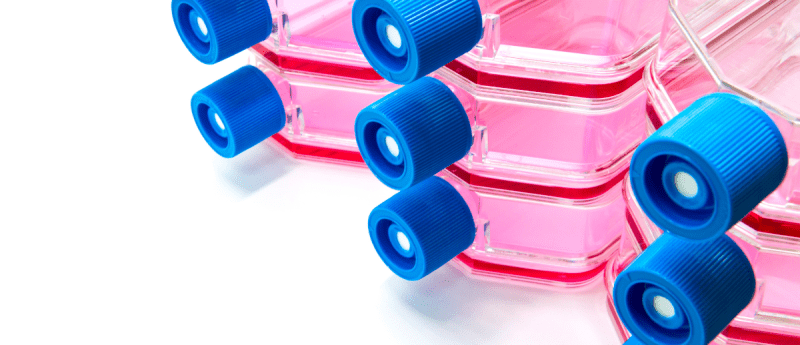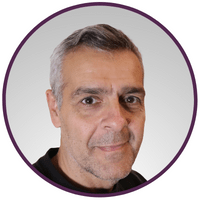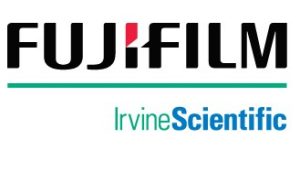Personalizing your cell culture media: an interview with Ramiro Gisler

In this interview with Ramiro Gisler, the Strategic Director for Cell and Gene therapy at FUJIFILM Irvine Scientific (CA, USA), we discuss how custom media can overcome challenges in your cell culture workflow and investigate how waiting until later in the development process to confirm your media choice impacts the eventual development of a cell therapy.
This interview is part of the RegMedNet In Focus on cell media customization. Discover expert opinions on this topic by visiting our feature homepage.
Please introduce yourself and your company/institution.
My name is Ramiro Gisler and I am the Strategic Director for Cell and Gene therapy at FUJIFILM Irvine Scientific (CA, USA). From its inception in 1970, FUJIFILM Irvine Scientific began as a cell culture media and an in vitro fertilization company and has grown to a global leader in the innovation and manufacture of cell culture media, reagents and medical devices.
Irvine Scientific was acquired by FUJIFILM in 2017 and continued to expand the Cell and Gene Therapy media and Bioproduction portfolios. In March of 2022, we acquired Shenandoah Biotechnology Inc. (Warwick, PA), a leading manufacturer of recombinant proteins and cytokines. This partnership compliments FUJIFILM Irvine Scientific Inc.’s advanced cell culture solutions and bioprocessing expertise, providing our customers with a single point of access for their research, discovery and manufacturing.
Why do researchers seek personalized cell culture media?
Many times, when clients approach us to develop new media, they want to focus on very specific compartments of these different cell subtypes. Developing media that would work for their specific requirements will address issues that the client has within their own workspace and workflows; this includes their choice of bioreactors, donor variations, specific progenitor or lymphocyte sub fractions and so on. Our custom cell culture media and process development can help identify, optimize and produce prototypes that meet their requirements.
Our off-the-shelf media works very well for mesenchymal stromal cell culture space, as well as the densely populated space of the expansion of T-cells, natural killer cells and the differentiation of dendritic cells.
How would a customer obtain custom media? What do both the customer and we, as a vendor, bring to the table?
Our Technical Application Scientists (TAS) work collaboratively with the customer to achieve their specific end goal. The TAS funnels all the initial information and customer requests to our research and development (R&D) department and our formulation scientists. R&D then assesses the feasibility of the project and often, this phase will include further discussions to clarify goals, cell culture methods and other specific details of the client’s process. Once everyone agrees with the strategy, the deliverables and the expected results, we can begin the Media Development and Optimization (MDO) process.
The MDO is performed in complete collaboration with the customer, as they share their expectation of the media, including the requirements of function, potency and cell numbers. Based on our feasibility assessment, R&D will successively develop several iterations of media, each one building on the previous one, designed to improve the metrics agreed upon with the client. These prototypes can be tested on-site at FUJIFILM Irvine Scientific, with the client’s cells and protocols, or tested by the client at their facility. Either way, the FUJIFILM Irvine Scientific R&D team will accompany the process every step of the way, with a dedicated Project Manager to keep the project on track.
Prototypes are manufactured in our non-GMP Express Media Service program, prior to finalizing a media or a solution that is good manufacturing practice-compliant for the production of a specific cell therapy. The Express Media Service program has been designed to speed up the identification of the media that later will be produced by our GMP team.
How long can the custom media development process take, and can the customer participate?
The customer participates throughout the entire process, interacting with our R&D team and especially our technical application scientists. The duration of the project depends on the task. Simple tasks can include modifying a formulation that already exists, whereas others can be more complex, for example, designing an expansion media from scratch that requires the generation of different prototypes.
Most media will need to be modified to suit specific donor variations. For example, different T-cells have different requirements for expansion or generation of a specific therapy. Therefore, the time a custom media development process takes is dependent on its requirements and the goals of the project. Certainly, depending on the number of prototype iterations, the MDO project will take several months.
What characteristics or components should be considered when optimizing a medium formulation, for example, with regard to chemically defined media?
Our customers appreciate the possibility to develop technologies for expansion and differentiation of cells in chemically defined conditions for several reasons. The first is lot-to-lot variation; we essentially remove lot-to-lot variation, improving the overall outcome and consistency of the therapy. Chemically defined media is a compliance friendly-media, without addition of human or animal components that could potentially create a regulatory hurdle in the production of the final therapy.
What impact could confirming the media choice later in the development process have on the eventual deployment of the therapy?
The recommendation is to start thinking about media and expansion systems as soon as possible, this should not be left for a later stage of the process. The reason for this is that optimization is quite an extensive project and cells in pre-production behave in a very different manner. The fitness of the cells, the cell numbers and function of a cell are very different in plate- or flask-based systems and large-scale expansion or production. Therefore, it is very important for scientists developing new technologies and therapies to keep this in mind while developing different workflows.
Our TAS, tech support, and R&D teams are experts, dedicated to facilitating this process and to identify and mitigate or minimize any type of hurdle or risks related to the establishment of such workflows. FUJIFILM Irvine Scientific’s media manufacturing experience provides the basis for a comprehensive approach to the validation, qualification, and certification program of the manufacturing processes, equipment, and methods utilized. Our regulatory team provides support for every stage of the process.
Should the media be good manufacturing practice (GMP) during scale up, or can small volumes of media from the Express Media Service suffice for preclinical requirements?
Our company collaborates closely with our clients during the MDO process, which is composed of two phases. The first one is the prototype phase, where the media is optimized. All the optimization processes up to that point are designed to be performed rapidly and flexibly. The media being used by our clients in this phase, to optimize and to assess the formula is produced by our Express Media Service.
GMP production of media kicks in later, once the final formula is approved. During the tech transfer process, the final formula is rigorously reviewed again and the manufacturing process is finalized.
What can the client do if they are satisfied with their media but find it arduous to prepare and sometimes difficult or time consuming to hydrate?
FUJIFILM Irvine Scientific has extensive experience with designing media that are simple to prepare, consistently. Our Manufacturing Science and Technology Service was created to assist specifically with issues around hydration and preparation of media and process liquids, under the premise that user-friendly media that are easy to prepare will provide consistent results with the least risk of handler errors and contamination.
How do you see the future of customized cell culture media evolving in the next five years?
I believe that we are starting to see new applications and new therapies that bear witness to the enormous progress made in cell and gene therapy in recent years. We are seeing efforts to modify cells with new technologies or create CAR-T cells and different gene modifications in vivo. There are novel attempts to create therapies from hematopoietic stem cells, which is something that we will probably begin to see more in the next 5 years. This expanded range of novel applications and innovative therapies will require expertise and commitment from media producers like FUJIFILM Irvine Scientific. As a result, I suspect that there will be an increase in new technologies that will require flexibility of the media companies to adapt media for their rapidly evolving purposes.

Ramiro Gisler, Strategic Director for cell and gene therapy at FUJI FILM Irvine Scientific (CA, USA), leads the development of partnerships for external collaborations, research partnerships and innovation initiatives. As an immunologist and stem cell biologist, Ramiro brings over 25 years of experience in the fields of lymphopoiesis, lineage commitment in health and disease, cancer research and molecular immunology.
He holds a PhD in Biochemistry and Molecular Biology and a Master of Science in Cellular and Molecular Biology from Lund University (Sweden) and worked at the Institute of Molecular Pathology (Vienna, Austria).
Disclaimer
The opinions expressed in this interview are those of the interviewee and do not necessarily reflect the views of RegMedNet or Future Science Group.
In association with
